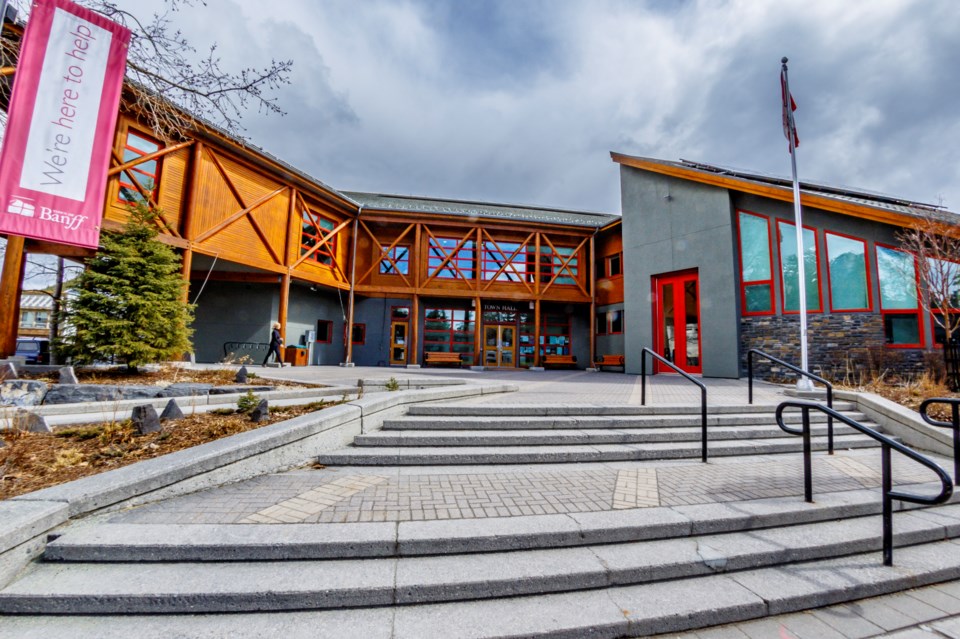BANFF – Banff council’s move to shift most of the tax burden to hotels this year is not sitting well with Banff & Lake Louise Hospitality Association.
Council passed first reading of a tax rate bylaw earlier this month with a 5:1 mill rate split, which is the the maximum split permitted by the province under the Municipal Government Act. Second and final reading are scheduled for Monday, April 22.
A 5:1 split means that for every dollar of assessed property value, a non-residential property would pay five times the tax a residential property would pay.
Wanda Bogdane, executive director of Banff & Lake Louise Hospitality Association (BLLHA), said it was difficult to see council forfeit the equalization goal and flexibility it affords the municipality.
“There are no guarantees that Banff won’t face circumstances needing shifts in the strategic approach around the ratio,” she said.
“A disaster could level the industry and then the municipality would be devoid of tools to maneuver for its financial agility.”
The overall tax levy including municipal, education and housing levies is increasing by 12.10 per cent to $35.7 million from 2023.
However, Lauren Aebig, director of corporate services for the Town of Banff, cautioned this is not indicative of the expected change on individual tax bills, especially within the various sub-sectors of commercial properties.
“The average residential property would see an increase of approximately 3.49 per cent, but the average hotel would see an increase of 42.47 per cent, an average downtown mixed-use property would see a decrease of 17.49 per cent, and an average industrial property would see a decrease of 11.12 per cent.”
A mill rate split of 5:1 would bring the municipality into compliance with the Municipal Government Act cap.
While Banff does not have to comply with this cap until 2027 because of the unique aspects of the incorporation agreement, Town of Banff officials say it is advised the municipality come into compliance at the earliest opportunity.
“Meeting this target in 2024 is positive, but limits the ability for the Town to balance tax changes in the future arising from changing economic conditions,” said Aebig.
“Council may, in future years, consider reducing the split to allow more flexibility in this regard.”
Administration had recommended a mill rate split of 4.3345:1, which would equalize the annual percentage increase in the municipal portion of the tax levy between residential and non-residential properties at 10.36 per cent.
The total municipal tax levy is $24.9 million, up 10.36 per cent from last year. The municipal requisition represents 69.7 per cent of the overall tax levy.
The provincial education tax requisition, which is collected by the Town of Banff for the province and represents 28.9 per cent of the overall tax levy, has increased by $10.3 million, up 17.55 per cent from 2023.
The 2024 Bow Valley Regional Housing requisition is 1.26 per cent lower than in 2023, at $494,347 and representing just 1.4 per cent of overall levy.
For 2024, the Town of Banff has seen a total residential assessment increase of 5.2 per cent from $2.15 billion to $2.26 billion, while non-residential assessments have jumped by 40.8 per cent from $1.25 billion to $1.76 billion.
The total overall assessment for the Town of Banff has increased by 18.3 per cent from $3.40 billion to $4.02 billion.
Mayor Corrie DiManno, who was the lone vote of opposition to the 5:1 split at first reading, leaning more towards the 4.3345:1 scenario.
Bogdane said BLLHA will be seeking clarification on Coun. Grant Canning’s remarks when he suggested residential properties lifted up the commercial ratepayers during the COVID-19 pandemic.
“This is not reflective of what was on record or what we observed during the tax rate bylaws of the multi-year duration of the pandemic,” she said.
Bogdane said BLLHA membership has also expressed being “genuinely disappointed” that Coun. Hugh Pettigrew took the group’s previous remarks out of context when he pushed for a 5:1 tax split.
“When the tax ratio was 6.3:1, this was our association’s advice, but it is not reflective of our current position,” she said.
“He presented the information as though it was current and it came across as unscrupulous.”




